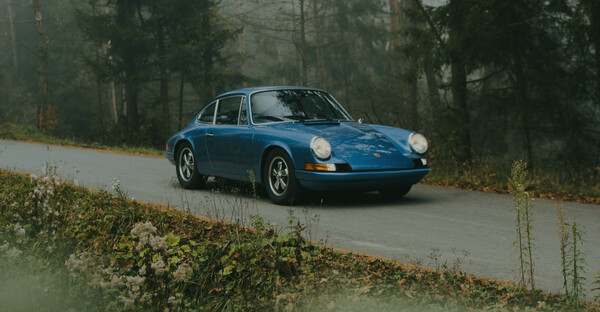Description
The Special One !!
Corvette C6
Only 21500 miles, genuinely. !!
CHEVROLET
Date of first registration
January 2006
Date of first registration with DVLA
March 2016
Year of manufacture 2005
Cylinder capacity 7000 cc
0First some background on the car itself. As you may or not be aware, General Motors has run Corvettes at Le Mans as a factory backed team for over 25 years. This car is a 6th generation Corvette, or C6 as termed in North America. The platform for the GT1 class by the ACO then as today was a production car. The platform for the C6R GT1 race car introduced for the 2006 Le Mans race was the 2006 C6 Z06. To race the C6R car at Le Mans, General Motors was required to build a homologation number of road cars that had parts in common with the C6R race car. This car was built for the homologation build run. It was built in October 2005 in a batch of C6 Z06's at the Corvette assembly plant in Bowling Green Kentucky. At the time, General Motors was not taking direct orders but delivering cars to select dealerships factory spec'd with in this cars case the variance being colour and either chrome or painted wheels. All other specifications were constant.
Under the ACO's GT1 rules at the time, the road car and race car had to have common parts being:
1. The engine, less cylinder heads and intake manifold. For the C7 Z06, General Motors introduced the LS7 (7 litre) V8 specifically to race at Le Mans. In following years, The ACO limited displacement thus the cylinder bore remained constant with a shorter stroke. For 2006, 2007 and 2008 years the race engine was 7 litres. As such, the engine block (alloy), crankshaft, connecting rods (titanium), pistons, camshaft and valve lifters (solid) were/ are common to the C6R race engine.
2. Front wing fenders in the road car are carbon fiber and common to the race car.
3. Roof is made of magnesium, common to the race car.
4. The car frame, constructed of an aluminium alloy developed by Alcola for the race car, is the platform for the 2006 C6 Z06 road car. This is important as the race car required torsional rigidity.
5. The engine is dry sump, common to the race engine.
The suspension of the race car is different, though many enthusiasts converted their road cars to coil over suspensions in lieu of the composite transverse leaf springs at the rear, there was no noticeable difference in handling on the road or the track.
At the time there were a limited number of these cars allocated to Canadian dealers, with dealers offering the cars at a substantial premium of MSRP. Thus I went searching for one in the US. This car was delivered to a dealer in January 2006 to a dealer in Lake Forest Illinois, who subsequently sold the car to a dealer in Las Vegas Nevada as cars like this do not sell in Chicago winters. I purchased this car through a Canadian dealer for MSRP, with the car delivered to the Canadian dealer in Toronto (the other side of Canada) in April 2006 with delivery/ dealer mileage. I kept the car in Calgary for two years enjoying it on many track days on our then local 2. 4 mile road circuit. In stock form with the right driver, being me at the time, it would outperform the then 2005-2006 Ford GT in stock form. I should note, that I turned down a 2006 Ford GT Heritage Edition at MSRP because I could not fit in it due to the height of my torso with a helmet on. On reflection a silly decision. In 2008, I shipped the car to the island of Maui in Hawaii where I had a home at the time. When I was there, I would hill climb it to the summit of the 10, 700' volcano on Sundays that were organised by the SCCA. Though the air was thin, the torque of the LS7 and the grip offered by the suspension made for a fun ride, though my wife at the time did not think so.
I brought the car back to Canada in 2014, and sent it in 2015 to a noted local Corvette tuner called Davenport Motorsports for some upgrades to cure some deficiencies I had noted over the years, and those noted by others on online forums. These are as follows:
1. Suspension: The factory suspension was very hard, caused by the stock Bilistien struts. This caused the car to be unbalanced when cornering on uneven road surfaces. Bilstein and GM recognised this, and offered replacement struts that reduced the stiffness thus offering more stability. These are now on the car and make it more tractable, thus the fillings will stay in your teeth.
2. Exhaust: I replaced the cast exhaust manifolds with American Racing long tube 1 7/ 8" balanced racing headers. This required additional heat shielding under the floor in the area of the headers.
3. Air Induction: I replaced the stock air induction and throttle body/ mass air sensor with a Lingenfelter (noted Texas based tuner) unit to reduce induction restriction. (Note: GM detuned the LS7 for the road cars thus the stock 505 HP).
4. Exhaust Valves: Replaced the stock sodium filled exhaust valves with Monel exhaust valves as the stock valves were failing on some engines. Though at the time and to this day, my thoughts were then that exhaust valve failure was mostly due to drivers with inexperience driving push rod high performance engines,




















